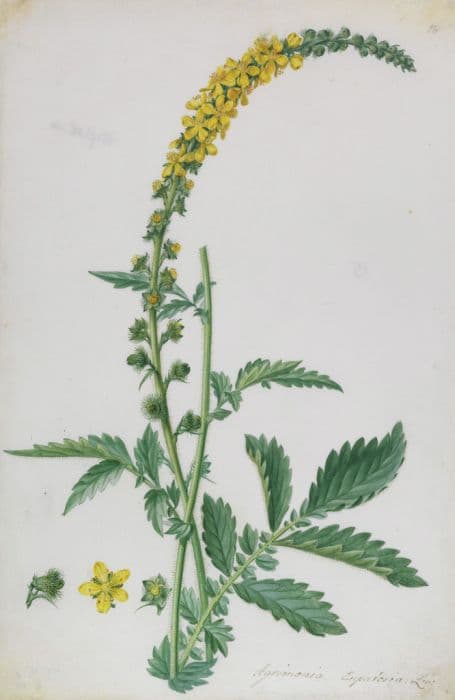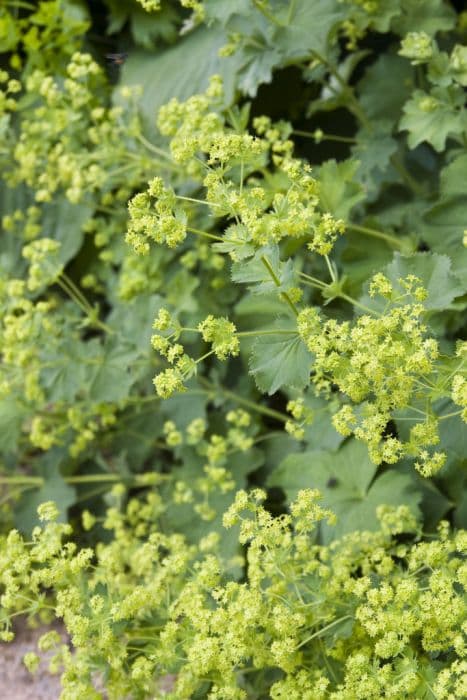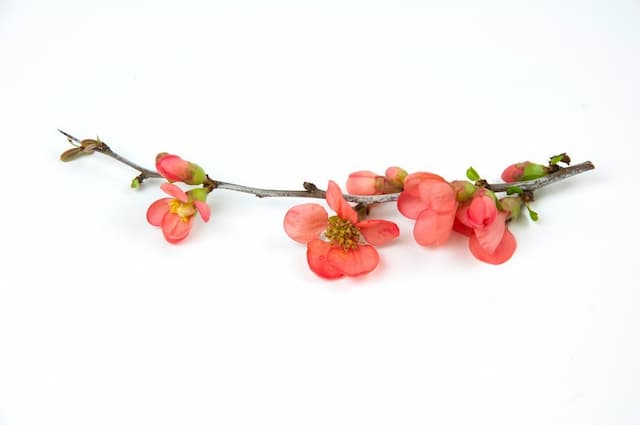Super Elfin Rose Rosa Super Elfin = 'Helkleger' (PBR) (Ra)
![rose [Super Elfin]](/_next/image?url=https%3A%2F%2Fplants-admin.emdemapps.com%2Fimages%2Fplants%2F%2Fimages%2F604b561e3dd1a.png&w=3840&q=75)
ABOUT
The Rosa Super Elfin, commonly known as the rose, is a captivating plant known for its stunning blooms. The flowers are the hallmark of this rose, featuring a rich and vibrant red color that is both intense and eye-catching. Each blossom on the rose plant is meticulously crafted by nature with delicately overlapping petals that create a classic rose shape that is both full and rounded, inviting observers to admire its intricate beauty. The foliage of the rose plant is lush and dense, painting a backdrop of deep green leaves which contrast strikingly against the red flowers. These leaves have a glossy sheen to them, with a texture that is smooth to the touch, and edges that are typically serrated, adding a subtle texture to the plant's overall appearance. Together, the blossoms and foliage present a timeless elegance, making the Rosa Super Elfin a beloved choice for garden enthusiasts and a popular plant for adding a touch of classic charm to any landscape or floral arrangement. Despite the exclusion of size details, it's clear this rose variety is a harmonious blend of color, form, and grace.
About this plant
 Names
NamesFamily
Rosaceae
Synonyms
Super Elfin Rose, Helkleger Rose
Common names
Rosa 'Helkleger', Rosa 'Super Elfin'
 Toxicity
ToxicityTo humans
Generally, roses, including the Super Elfin rose, are not considered toxic to humans. However, roses have thorns that can cause physical injury if not handled with care. If any part of the rose were ingested in large amounts, it could potentially cause mild stomach upset due to the unusual ingestion of plant material, but they do not contain toxic substances that would lead to serious poisoning or severe symptoms in humans.
To pets
Similar to their effect on humans, roses like the Super Elfin rose are not toxic to pets. Dogs, cats, and other domestic animals may experience mild gastrointestinal upset if they consume parts of the rose, such as petals or leaves, especially in large quantities. The primary concern would typically come from injury caused by the thorns rather than poisoning from the plant material itself.
 Characteristics
CharacteristicsLife cycle
Perennials
Foliage type
Deciduous
Color of leaves
Green
Flower color
Pink
Height
2 feet (0.61 meters)
Spread
2 feet (0.61 meters)
Plant type
Shrub
Hardiness zones
6
Native area
Cultivar
Benefits
 General Benefits
General Benefits- Aesthetic Appeal: Super Elfin Rose enhances gardens with its vibrant blooms and has a compact, bushy habit that is visually attractive.
- Long Blooming Season: Known for its extended flowering period, which ensures colorful displays from late spring to frost.
- Low Maintenance: Once established, the Super Elfin Rose is relatively easy to care for, requiring minimal pruning and upkeep.
- Drought Tolerance: Demonstrates a degree of drought resistance, making it suitable for gardens in drier climates once fully established.
- Disease Resistance: Bred for improved resistance to common rose ailments such as black spot and powdery mildew.
- Versatility: Its size and growth habit make it suitable for various landscape uses, including borders, containers, and as ground cover.
- Pollinator Friendly: Attracts bees, butterflies, and other beneficial pollinators, supporting the local ecosystem.
 Medical Properties
Medical PropertiesThis plant is not used for medical purposes.
 Air-purifying Qualities
Air-purifying QualitiesThis plant is not specifically known for air purifying qualities.
 Other Uses
Other Uses- Artistic ink and dye: Petals of the rose can be crushed to create a natural dye for artworks, textiles, or even cosmetic products like lip balms and blush.
- Culinary decoration: Roses can be crystallized with sugar to create elegant edible decorations for cakes and desserts.
- Floral water: Rose petals can be distilled to create floral waters that are used as refreshing spritzers or in home-made natural cleaning products.
- Scented sachets: Dried rose petals can be filled in small pouches to create scented sachets for drawers, closets, or even as a natural car air freshener.
- Crafting potpourri: Dried rose petals and buds can be mixed with spices and other dried flowers to create a fragrant potpourri.
- Bath additives: Rose petals can be added to bath bombs or bath salts for a luxurious and skin-soothing bathing experience.
- Aromatherapy: Rose scent from the petals can be incorporated into candles or diffuser oils for its calming and relaxing qualities.
- Gourmet flavoring: Dried rose petals can be used to infuse sugar or honey with floral notes, ideal for baking or sweetening teas.
- Candle decoration: Fresh or dried rose petals can be embedded into homemade candles for an aesthetic touch.
- Natural confetti: Rather than using paper, dried rose petals serve as an environmentally friendly option for celebratory tosses at weddings or other events.
Interesting Facts
 Feng Shui
Feng ShuiThe rose is not used in Feng Shui practice.
 Zodiac Sign Compitability
Zodiac Sign CompitabilityThe rose is not used in astrology practice.
 Plant Symbolism
Plant Symbolism- Love: As a rose, the 'Super Elfin' is commonly associated with expressions of love, which can range from romantic love to a more generalized feeling of compassion and affection.
- Beauty: The rose is often considered a symbol of beauty, both inner and outer, due to its elegant appearance and its historical association with the goddess Aphrodite/Venus.
- Honour: In many cultures, giving a rose is a way to show respect and honor, often used in ceremonies or as a tribute to someone's achievements or noble qualities.
- Devotion: The 'Super Elfin' rose, like other roses, can signify deep devotion and commitment, whether it be in a friendship, family relationship, or a romantic partnership.
- Mystery: The complexity of a rose's beauty has also made it a symbol of mystery, an emblem of secrets waiting to be unveiled or the unknown aspects of a person's personality.
- Balance: The symmetry of the rose's petals has been seen as a representation of balance and harmony in life, suggesting an equilibrium between the physical and spiritual.
 Water
WaterThe Super Elfin rose should be watered deeply and infrequently to encourage strong root development. Typically, watering once a week with 1 to 1.5 inches of water is sufficient. During hot, dry periods, the frequency may increase to every 2-3 days. It's important to avoid overhead watering to prevent disease, so direct water to the base of the plant. Adjust the amount and frequency according to the weather and the soil's moisture level, ensuring the soil is moist but not waterlogged.
 Light
LightSuper Elfin roses require full sun to thrive, which means they should receive at least 6-8 hours of direct sunlight each day. The best spot for these roses would be in a garden bed that has clear, unfiltered sun for most of the day, ensuring that light reaches the roses without obstruction.
 Temperature
TemperatureSuper Elfin roses do best in a temperature range between 65°F and 75°F, which promotes optimal growth and flowering. They can tolerate temperatures as low as 20°F and as high as 90°F, but prolonged exposure to temperatures outside the ideal range can stress the plant. In winter, protection may be necessary if temperatures drop below the minimum threshold.
 Pruning
PruningPruning Super Elfin roses is essential to maintain plant health, encourage new growth, and improve flowering. Prune in late winter or early spring, just as the buds begin to swell. Remove dead, damaged, or diseased canes, and thin out the center to increase air circulation. Pruning should be done annually, with additional deadheading of spent blooms throughout the growing season.
 Cleaning
CleaningAs needed
 Soil
SoilMiniature roses like Rosa Super Elfin prefer well-draining, loamy soil with a pH between 6.0 and 7.0. A good mix for these roses would be one-third garden soil, one-third compost, and one-third coarse sand or perlite. Ensure to mix in organic matter to enrich the soil and promote healthy growth.
 Repotting
RepottingMiniature roses such as Rosa Super Elfin should typically be repotted every two to three years to replenish the soil and encourage continued growth. It's best to repot these roses in the spring before they start their active growing season.
 Humidity & Misting
Humidity & MistingRosa Super Elfin, like other miniature roses, thrives best in moderate humidity levels. They perform well within the range of 40-60% relative humidity, which is typical for many indoor environments, but can tolerate lower levels without adverse effects.
 Suitable locations
Suitable locationsIndoor
Place in sunny spot, water deeply, ensure good air circulation.
Outdoor
Full sun, well-drained soil, mulch, protect in winter.
Hardiness zone
5-11 USDA
 Life cycle
Life cycleThe Rosa 'Super Elfin', commonly known as the 'Helkleger' rose, begins its life cycle when the seeds germinate, typically requiring a period of stratification to break dormancy. The seedlings develop into young plants with a set of true leaves, and over time, they establish a root system and foliage as they enter the vegetative growth stage. These roses enter the flowering stage during the growing season, producing their characteristic blooms which, depending on climate and care, can reoccur in flushes from late spring through fall. After pollination, roses may produce hips (fruit) containing seeds, allowing for potential reproduction and the start of a new generation. Throughout the growing seasons, the rose will continue to grow and mature, entering dormancy during the colder months. Pruning is essential in late winter or early spring to promote healthy growth and enhance blooming in the following season.
 Propogation
PropogationPropogation time
Spring-Early Summer
The Rosa Super Elfin, commonly known as 'Helkleger' Rose, can be propagated most popularly by softwood cuttings. This method is typically done in late spring to early summer when the stems are new and still flexible. To propagate by softwood cuttings, take a 4 to 6-inch cutting from a healthy, non-flowering stem, making the cut at a 45-degree angle just below a leaf node. Remove the leaves from the lower half of the cutting, dip the cut end into rooting hormone, and then insert it into a moistened mixture of half peat and half perlite or sand to ensure good drainage. Cover the cutting with a plastic bag or place it in a propagator to maintain a humid environment, and keep it in indirect light. Roots usually develop in 3 to 4 weeks, after which the cutting can be transferred into potting soil. Always remember that roses are often subject to plant breeder's rights, meaning propagation may be legally restricted.









